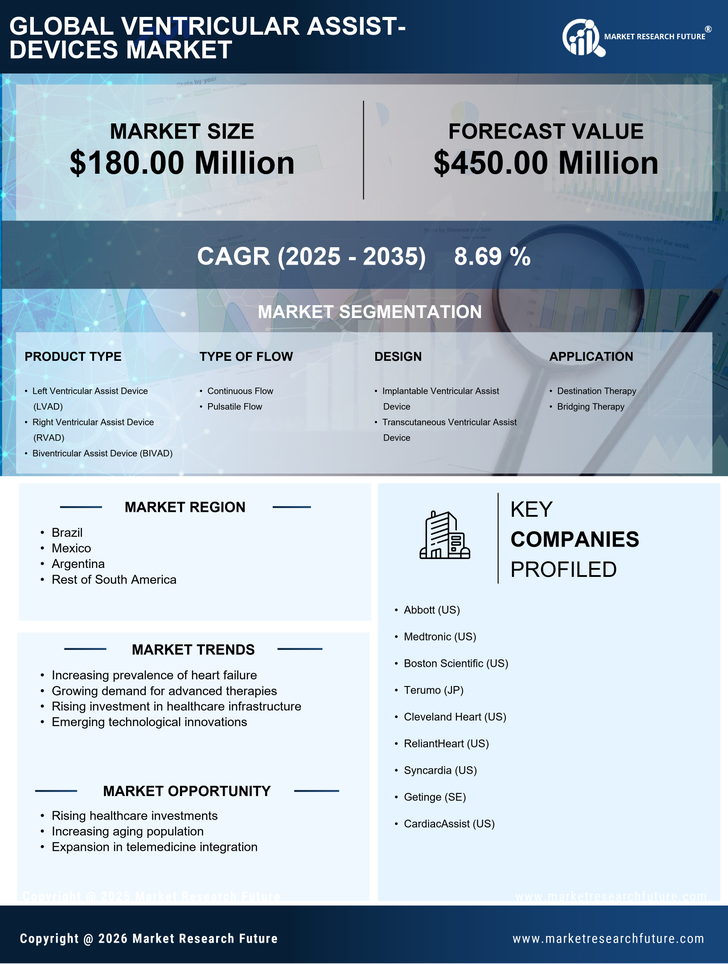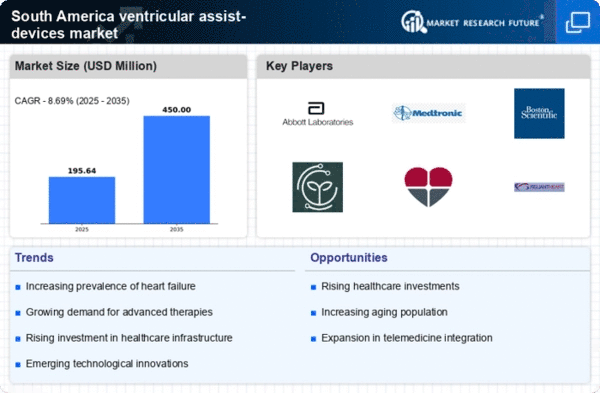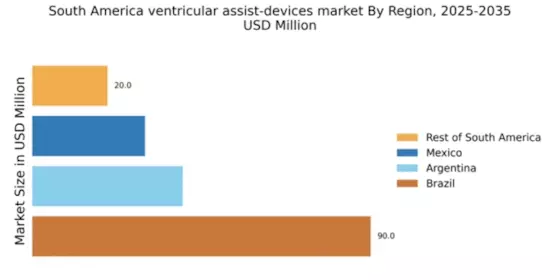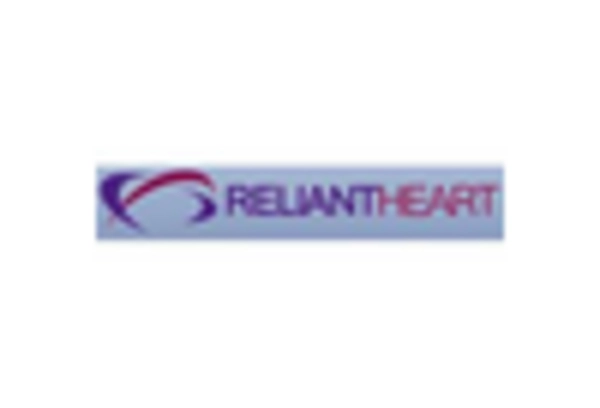Rising Incidence of Heart Failure
The increasing prevalence of heart failure in South America is a primary driver for the ventricular assist-devices market. According to recent health statistics, heart failure affects approximately 6-10% of the adult population in this region. This growing patient population necessitates advanced treatment options, including ventricular assist devices, to improve survival rates and quality of life. As healthcare providers seek effective solutions to manage heart failure, the demand for these devices is expected to rise significantly. The ventricular assist-devices market is likely to experience substantial growth as hospitals and clinics invest in these technologies to address the urgent needs of heart failure patients. Furthermore, the aging population in South America contributes to this trend, as older adults are more susceptible to cardiovascular diseases, thereby increasing the market potential for ventricular assist devices.
Supportive Reimbursement Policies
The establishment of favorable reimbursement policies for ventricular assist devices in South America is a significant driver for the market. Governments and insurance providers are increasingly recognizing the value of these devices in improving patient outcomes and reducing long-term healthcare costs. As reimbursement frameworks evolve to cover the costs associated with ventricular assist devices, healthcare facilities are more likely to adopt these technologies. This trend is expected to enhance the accessibility of devices for patients who require them, thereby expanding the ventricular assist-devices market. Furthermore, the potential for cost savings associated with reduced hospital readmissions and improved patient management may encourage further investment in these devices by healthcare systems across the region.
Technological Innovations in Device Design
Innovations in the design and functionality of ventricular assist devices are propelling the market forward in South America. Recent advancements have led to the development of smaller, more efficient devices that offer improved patient outcomes. For instance, the introduction of continuous-flow devices has revolutionized treatment options, providing patients with better mobility and quality of life. The ventricular assist-devices market is witnessing a surge in research and development activities aimed at enhancing device performance and biocompatibility. As manufacturers focus on integrating advanced materials and smart technologies, the market is expected to expand. The potential for these innovations to reduce complications and improve patient adherence to treatment regimens further underscores their importance in the evolving landscape of cardiac care in South America.
Collaboration Between Healthcare Stakeholders
Collaboration among various stakeholders in the healthcare sector is fostering growth in the ventricular assist-devices market in South America. Partnerships between device manufacturers, healthcare providers, and research institutions are facilitating the development and dissemination of innovative technologies. These collaborations often lead to clinical trials and studies that validate the efficacy of ventricular assist devices, thereby enhancing their acceptance in clinical practice. The ventricular assist-devices market benefits from these synergies, as they promote knowledge sharing and resource allocation towards improving patient care. Additionally, such collaborations may result in the establishment of specialized centers for heart failure management, further driving the demand for ventricular assist devices in the region.
Growing Awareness and Education on Heart Health
In South America, there is a notable increase in awareness regarding heart health and the available treatment options for heart failure. Public health campaigns and educational initiatives are playing a crucial role in informing patients and healthcare professionals about the benefits of ventricular assist devices. This heightened awareness is likely to drive demand within the ventricular assist-devices market, as more patients seek advanced therapies for managing their conditions. Additionally, healthcare providers are becoming more knowledgeable about the indications for device implantation, leading to earlier referrals and increased utilization of these technologies. As a result, the market is expected to grow as patients become more proactive in seeking treatment options that can enhance their quality of life and longevity.


















